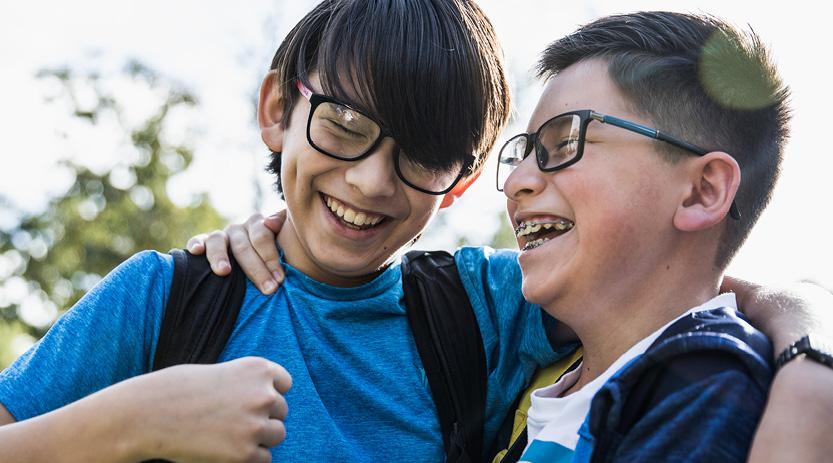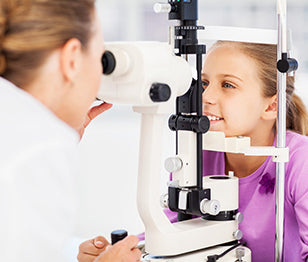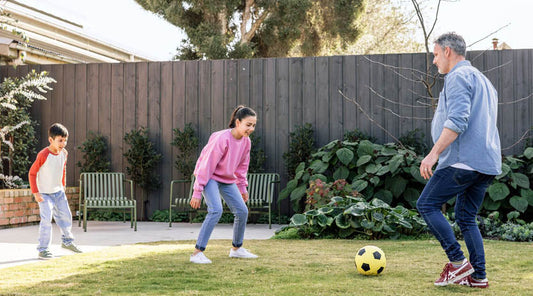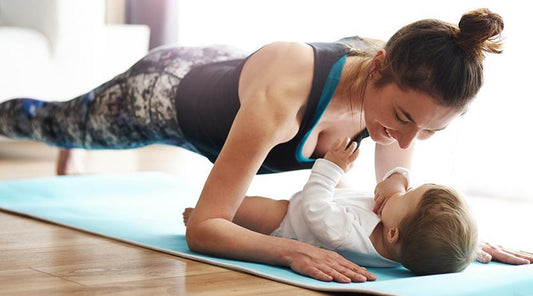Can children and teens wear contact lenses?

Contact lenses are comfy, convenient and stylish – so it’s no surprise kids and teens often want to ditch the glasses for contacts too.
Here’s how to work out if your child’s ready for the responsibility that comes with wearing contact lenses.
Are contact lenses the right option?
Contact lenses offer children and teens two main benefits – more freedom to stay active, and a boost to their self-confidence too.
“Especially with teens, contact lenses give them a bit more flexibility in being able to be active without having to worry about glasses getting in the way,” says Bupa Optometrist Karen Makin. “And wearing contact lenses instead of glasses can really help with self-esteem.”
Some eye conditions can have a better visual outcome with contact lenses as well. “With short-sightedness, for example, sometimes contact lenses are recommended to try and manage the progression of the condition,” says Karen. “So the child might not have even thought about contact lenses, but the optometrist might suggest them for a therapeutic or an optical reason.”
How old does my child have to be to get contact lenses?
It depends. Some kids start wearing contact lenses as early as 7 or 8 years old (with parental help). Others need to wait until they’re teenagers before they take on the responsibility.
“If a child is going to wear contact lenses, they need to understand the importance of washing their hands before putting them in and taking them out”, says Karen. “They need to take them out when they’re supposed to and not wear them for longer than prescribed.”
It’s also important that your child or teen knows not to swap lenses with other kids and to never use saliva to moisten a lens.
How can you help?
It might take some time for your child to get used to putting in their lenses and taking them out. The best thing you can do as a parent? Let them learn how to do this independently.
“Most of the time we want the child to be able to insert and remove the lenses themselves,” she says. “It’s especially important to learn to remove the lenses because if they’re at school or somewhere where the parent is not, and something happens, they need to be able to take the lenses out.”
As for how to get contact lenses for your child or teen, Makin says the process is much the same as for adults.
How can you get them started?
Book an eye test with your optometrist – they’ll let you know if contact lenses are right for your child. If you get the go-ahead, they’ll be given a trial pack of lenses to get familiar with wearing and caring for them.

We're here to help
Ask your optometrist if you have any questions about contact lenses or book a contact lens fit or refresh appointment today.
You might also like to read...
View all-
A little about Orthokeratology
Are you looking for a solution that doesn’t involve invasive procedures or surgery? Orthokeratology may be your answer…
Contact lenses guideA little about Orthokeratology
Are you looking for a solution that doesn’t involve invasive procedures or surgery? Orthokeratology may be your answer…
Read more -
Contact lenses 101: your need-to-know guide
How do teeny-tiny bits of plastic help you see better? Here’s an explainer on how contact lenses work.
Contact lenses guideContact lenses 101: your need-to-know guide
How do teeny-tiny bits of plastic help you see better? Here’s an explainer on how contact lenses work.
Read more -
Are contact lenses right for you?
Contact lenses are popular for a reason – they make life much easier for many people with vision issues. However, they might not be the right option for everyone.
Contact lenses guideAre contact lenses right for you?
Contact lenses are popular for a reason – they make life much easier for many people with vision issues. However, they might not be the right option for everyone.
Read more





